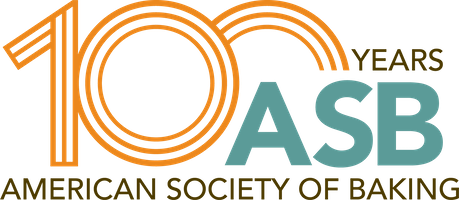No printed media, technical sessions, symposia, seminars, short courses, and/or all related forums and discussions offered under the auspices of the American Society of Baking (hereafter referred to as Society forums) are to be used as platforms for commercial sales or presentations by authors and/or presenters (hereafter referred to as authors) without the expressed permission of the staff or Executive Board. The Society enforces this policy in order to restrict commercialism in technical manuscripts, graphics, oral presentations, panel discussions, and all other type of submissions and presentations (here after referred to as submissions and presentations), so that scientific merit is not diluted by proprietary secrecy.
Excessive use of brand names, product names or logos, failure to substantiate performance claims, and failure to objectively discuss alternative methods, processes, and equipment are indicators of sales pitches. Restricting commercialism benefits both the authors and recipients of submissions and presentations.
This policy has been written to serve as the basis for identifying commercialism in submissions and presentations prepared for the Society forums.
The presentation of new technical information is to be encouraged. In addition to the commercialism evaluation, all submissions and presentations will be individually evaluated by the Program Committee chairperson, technical reviewers selected by the Program Committee chairperson, session convener, and/or staff on the basis of originality before inclusion in the program.
Submissions and presentations should present technical conclusions derived from technical data. If products or services are described, all reported capabilities, features or benefits, and performance parameters must be substantiated by data or by an acceptable explanation as to why the data are unavailable (e.g., incomplete, not collected, etc.) and, if it will become available, when. The explanation for unavailable data will be considered by the Program Committee chairperson and/or technical reviewers selected by the Program Committee chairperson in order to ascertain if the presentation is acceptable without data. Serious consideration should be given to withholding submissions and presentations until the data are available as only those conclusions that might be reasonably drawn from the data may be presented. Claims of benefit and/or technical conclusions not supported by the presented data are prohibited.
Excessive use of brand names, product names, trade names, and/or trademarks is forbidden. A general guideline is to use proprietary names once and thereafter to use generic descriptors or neutral designations. Where this would make the submission or presentation significantly more difficult to understand, the Program Committee chairperson, technical reviewers selected by the Program Committee chairperson, session convener, and/or staff will judge whether the use of trade names, tec., is necessary and acceptable.
Statements:
It may be useful to report the extent of application of technologies, products, or services; however, such statements should review the extent of application of all generically similar technologies, products, or services in the field. Specific commercial installations may be cited to the extent that their data are discussed in the submission or presentation.
Although general comparisons of products and services are prohibited, specific generic comparisons that are substantiated by the reported data are allowed.
Some information about products or services may be proprietary to the author’s agency or company, or to the user and may not be publishable. However, their scientific principles and validation of performance parameters must be described. Conclusions and/or comparisons may only be made on the basis of reported data.
Discussions of corporate capabilities or experiences are prohibited unless they pertain to the specific presented data.
Slides, photographs, videos, illustrations, art work, and any other type of visual aids appearing with the printed text in submissions or used in presentations (hereafter referred to as graphics) should be included only to clarify technical points. Graphics, which primarily promote a product or service, will not be allowed.
Graphics should relate specifically to the technical presentation. General graphics regularly shown in, or intended for, sales presentations cannot be used.
Names or logos of agencies or companies supplying goods or services must not be the focal point of the slide. Names or logos may not be shown. Names or logos of agencies or companies should only be shown on the first and last slides.
This policy will be sent to all authors of submissions and presentations in the Society forums.
Reviewers of submissions and presentations will accept only those that comply with this policy. Drafts of submissions and presentations will be reviewed for commercialism concurrently by both staff and/or technical reviewers selected by the Program Committee chairperson. All reviewer comments shall be sent to and coordinated by either the Program Committee chairperson. If any submissions are found to violate this policy, authors will be informed and invited to resubmit their materials in revised form before the designated deadline.
All authors presenting in a forum will be reminded of this policy by the Program Committee chairperson, their session convener, or the staff, whichever is appropriate.
Session conveners are responsible for ensuring that presentations comply with this policy.
While technical reviewers, session conveners, and/or staff may check submissions and presentations for commercialism, ultimately it is the responsibility of the Program Committee chairperson to enforce this policy through the session conveners and staff.
